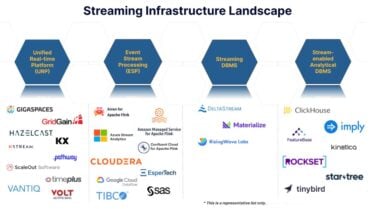
Event processing technology augments event-driven architecture, providing the necessary tools and infrastructure to process and react to events in real time. Combining event processing technology with MQ and Apache Kafka is not merely an operational choice; it’s a strategic and imperative move for businesses aiming for growth and success in today’s digital landscape.
Businesses are engaged in an ongoing battle to innovate, streamline operations, and leverage real-time insights to stay competitive in today’s rapidly evolving digital economy. We are in an era that prioritizes proactive approaches over reactive ones. To maintain a competitive edge, it is imperative for businesses to cultivate proactive decision-making processes. This begins with establishing a robust IT infrastructure that ensures the seamless availability of real-time data.
Central to this imperative is messaging infrastructure, a cornerstone that many businesses have already embraced. While messaging queue (MQ) technology is indispensable, the true catalyst for success lies in embracing event-driven architecture that extends the value of existing messaging data —an innovation that could serve as the key factor in your journey towards success.
Connectivity to suit every need
MQ focuses on supporting the instant exchange of data through efficient system-to-system message transfer. It provides a reliable exchange of messages between applications and systems for three decades. Its strength lies in ensuring precise and asynchronous instant data exchanges, guaranteeing critical data delivery while protecting against duplicates or losses. Moreover, MQ seamlessly integrates with other processing tools, setting the stage for building robust real-time and fault-tolerant technology stacks. With its flexible deployment options and continuous reinvention, MQ remains an industry leader, offering a future-proof solution for businesses aiming to thrive in dynamic environments.
On the other hand, Apache Kafka excels in high-volume data processing, focusing on gaining insights from vast streams of events. When paired with MQ, these technologies complement each other, offering a comprehensive solution that is able to cater to the diverse needs of a business. While MQ ensures precision and reliability in message delivery, Apache Kafka enhances data collection and stream processing, enabling businesses to spot patterns and trends in real time. Together, they empower businesses to harness the full potential of their data, developing intelligent solutions that drive growth and competitiveness in today’s fast-paced digital economy.
See also: How Event-Driven Can Unleash Your Next Generation of Applications
Continuous awareness to act in the moment
Combining MQ and Apache Kafka with event processing technology can revolutionize business operations through event-driven initiatives. For example, consider an order management system that leverages real-time insights to deliver high-value promotions to customers. By using MQ, messages such as orders are securely transmitted, ensuring data integrity even in the face of system failures. Apache Kafka complements this by processing streams of data in real time, powering the “live insights engine” with a constant flow of order data and contextual events. Together, they empower the system to analyze vast amounts of data efficiently, detect patterns, and swiftly execute actions like promotions or fraud detection, aligning with the business goal of timely and relevant customer engagement.
In another example, a financial services company can utilize real-time insights to craft targeted offers based on customer behavior. By integrating MQ and Apache Kafka, the company ensures the seamless transfer of data across the system while handling high-throughput, real-time data feeds. This integration enables the event processing system to detect patterns, update scoring models, and trigger targeted offers or detect anomalies instantly. By synthesizing insights from both historical and real-time data, the company can offer highly personalized and timely promotions, elevating customer engagement and satisfaction levels.
In essence, these two scenarios illustrate how event processing technology, powered by technologies like MQ and Apache Kafka, is indispensable for businesses seeking to grow in today’s fast-paced, data-driven world. By embracing event processing technology, organizations can unlock new levels of agility, responsiveness, and innovation, driving growth and competitive advantage.
Refine events for greater insight
Event processing technology augments event-driven architecture, providing the necessary tools and infrastructure to process and react to events in real time. Combining event processing technology with MQ and Apache Kafka is not merely an operational choice; it’s a strategic and imperative move for businesses aiming for growth and success in today’s digital landscape. By harnessing the power of real-time insights and scalability, organizations can unlock new opportunities for innovation, efficiency, and customer-centricity.
As businesses navigate increasingly complex and dynamic markets, the ability to swiftly respond to changing circumstances and customer needs is an integral differentiator that fuels competitive effectiveness. Event processing technology equips enterprises with the agility and resilience needed to thrive amidst uncertainty, enabling them to anticipate trends, optimize processes, and deliver unparalleled value to customers.



























